
Rilvegostomig appears to yield no dose-limiting toxicities among patients with advanced or metastatic PD-L1–positive non–small cell lung cancer in the phase 1/2 ARTEMIDE-01 study.

Your AI-Trained Oncology Knowledge Connection!


Rilvegostomig appears to yield no dose-limiting toxicities among patients with advanced or metastatic PD-L1–positive non–small cell lung cancer in the phase 1/2 ARTEMIDE-01 study.

ADAURA included patients at least 18 years of age with completely resected stage IB to IIIA nonsquamous NSCLC who harbored EGFR exon 19 deletions or exon 21 L858R mutations.
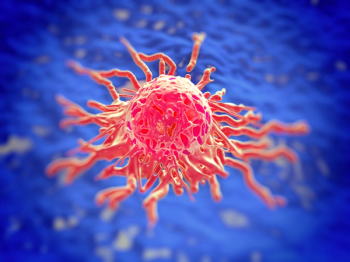
Patients with DLL3-positive small cell lung cancer and neuroendocrine carcinoma experience early efficacy following treatment with BI 764532.

For patients with early-stage non–small cell lung cancer, the addition of pembrolizumab to neoadjuvant platinum-based chemotherapy followed by resection and adjuvant pembrolizumab as a monotherapy results in a significant improvement in event-free survival and pathological response.

An expert from NYU Langone in New York City recently discussed the strengths and limitations of the oral tyrosine kinase inhibitor mobocertinib in platinum-pretreated patients with EGFR exon 20 insertion+ metastatic non-small cell lung cancer.
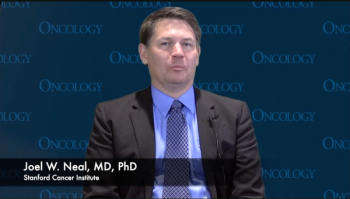
In terms of tumor control, treatment with cabozantinib and atezolizumab led to an overall response rate of 19% among patients with advanced non–small cell lung cancer, according to Joel W. Neal, MD, PhD.
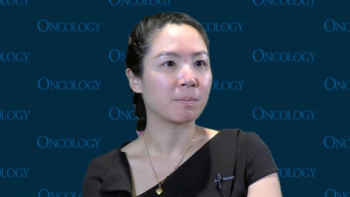
Catherine A. Shu, MD, spoke about the most important findings from the phase 1 CHRYSALIS-2 trial for patients with previously treated EGFR-mutant non–small cell lung cancer who are administered amivantamab plus lazertinib.

Findings from the phase 3 COSMIC-021 trial, comparing the effect of cabozantinib alone or in combination with atezolizumab vs docetaxel for advanced non–small cell lung cancer previously treated with immunotherapy, though promising, highlighted further need for randomized data to confirm the regimen’s benefit in the second-line setting, according to Joel W. Neal, MD, PhD.
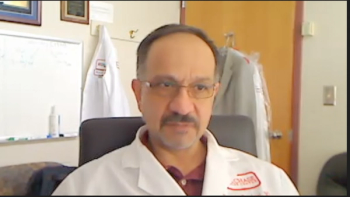
Hossein Borghaei, DO, MS, discussed where investigators may drive future research following the phase 2 Lung-MAP trial examining pembrolizumab and ramucirumab in previously treated advanced non–small cell lung cancer.
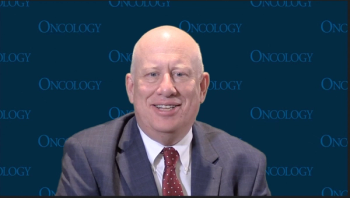
Treatment with adagrasib monotherapy yielded an overall response rate of 42.9% in patients with KRAS G12C–mutated advanced/metastatic non–small cell lung cancer, according to Alexander I. Spira, MD, PhD, FACP.

Blood circulating soluble proteins may be an effective and accessible biomarker for predicting response to immunotherapy among patients with squamous cell lung cancer.


Nicholas Coupe, MBBS, PhD, discusses promising preliminary findings from a phase 1/2 study assessing the use of IMM60 in patients with advanced melanoma and non–small cell lung cancer.
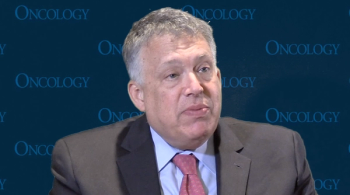
At 2022 ASCO, Roy S. Herbst, MD, PhD, spoke about the results of a Lung-MAP substudy showing benefit of ramucirumab plus pembrolizumab vs standard of care chemotherapy for patients with advanced non–small cell lung cancer who demonstrated resistance to prior immunotherapy.
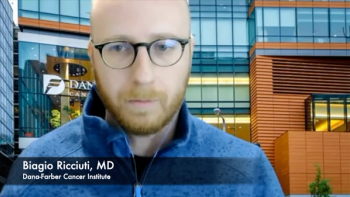
Biagio Ricciuti, MD, spoke about results of pembrolizumab monotherapy administration in patients with non–small cell lung cancer who had a PD-L1 tumor proportion score of 90% or more.
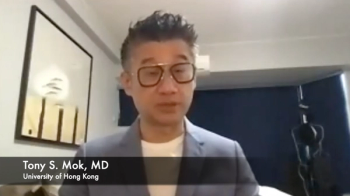
Tony S. Mok, MD, spoke about future research efforts focused on capmatinib plus pembrolizumab in patients with previously untreated MET-unselected, PD-L1–positive non–small cell lung cancer.
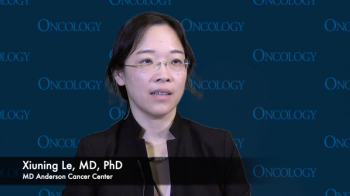
Xiuning Le, MD, PhD, spoke about which patients with advanced non–small cell lung cancer with high MET-amplification could benefit most from tepotinib based on molecular markers.

Patients with stage IB to IIA non–small cell lung cancer who experienced a pathologic complete response to neoadjuvant nivolumab plus platinum-based doublet chemotherapy experienced a prolonged event-free survival.

Xiuning Le, MD, PhD, spoke about the use of ctDNA biomarkers and why research should continue for those with advanced non–small cell lung cancer with high MET-amplification being treated with tepotinib.

Xiuning Le, MD, PhD, spoke about unmet needs in patients with advanced non–small cell lung cancer with high MET-amplifications and why tepotinib may be a good treatment option.
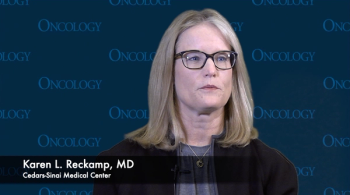
Karen L. Reckamp, MD, spoke about safety signals that emerged in the Lung-MAP nonmatched phase 2 substudy S1800A and what the next steps are for the combination of ramucirumab/pembrolizumab in patients with non–small cell lung cancer pretreated with chemotherapy and immunotherapy

Biagio Ricciuti, MD, spoke about the 3-year follow-up and prolonged survival benefit in patients with non–small cell lung cancer who had very high PD-L1 expression of 90% or more.

Karen L. Reckamp, MD, spoke about the rationale behind the Lung-MAP S1800A substudy of pembrolizumab plus ramucirumab for patients with non–small cell lung cancer and the topline results from 2022 ASCO.

Tony S. Mok, MD, spoke about the use of capmatinib plus pembrolizumab in patients with previously untreated non–small cell lung cancer who were MET unselected and had PD-L1 expression of 50% or more.
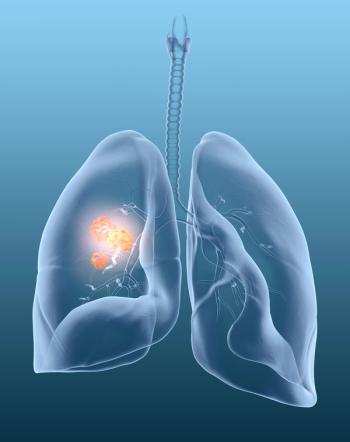
Results of the CHOICE-01 trial demonstrate the utility of toripalimab added to chemotherapy in advanced frontline non–small cell lung cancer at 2022 ASCO.

The phase 1/2 KRYSTAL-1 trial showed the use of adagrasib for KRAS G12C mutant-non–small cell lung cancer yielded results of positive intracranial activity and central nervous system penetration.

Without regard for tumor pathology or PD-L1 expression, administering sugemalimab in combination with chemotherapy was superior to chemotherapy alone in treating patients with non–small cell lung cancer.

Patients with non–small cell lung cancer previously treated with multiple lines of therapy may benefit from treatment with patritumab deruxtecan.

Results from a correlative analysis conducted with 3-years of follow-up showed pembrolizumab monotherapy resulted in the greatest long-term survival benefit in patients with non–small cell lung cancer and a PD-L1 tumor proportion score of 90% or more.

Patients with previously untreated, locally advanced stage 3 non–small cell lung cancer continue to derive a benefit from pembrolizumab with concurrent chemoradiation followed by additional pembrolizumab after more than 2 years of follow-up.